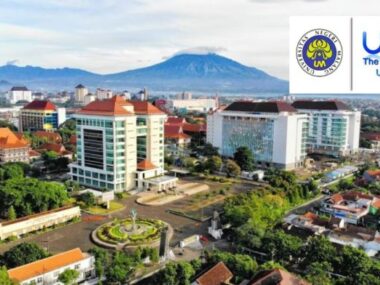Unleashing Greatness: How to Foster Leadership Skills in Yourself and Others
Introduction
Leadership is a crucial skill in today’s rapidly changing world. It is not limited to a chosen few; rather, it can be developed and nurtured in anyone willing to put in the effort. By understanding the key ingredients necessary to foster leadership skills, you can unleash greatness in yourself and others. In this article, we will explore various strategies, techniques, and mindset shifts that can help individuals cultivate leadership skills and unleash their full potential.
Section 1: Understanding Leadership
1.1 Defining Leadership
Leadership is not solely about holding a position of authority or power. It is about inspiring and motivating others to work towards a common goal. A leader influences those around them by setting an example, building trust, and empowering others to reach their potential.
1.2 Leadership Styles
There are several leadership styles, including democratic, autocratic, transformational, and servant leadership. It is essential to identify which style suits your personality and the needs of your team or organization.
1.3 Traits of a Good Leader
While leadership styles may vary, there are certain traits that exceptional leaders possess. These include effective communication, empathy, resilience, adaptability, and the ability to inspire and motivate others.
Section 2: Developing Leadership Skills
2.1 Self-Awareness and Emotional Intelligence
Leadership begins with self-awareness. Understanding your strengths, weaknesses, emotions, and values allows you to lead authentically. Emotional intelligence, including self-regulation, empathy, and social skills, enables leaders to connect with and understand their team members.
2.2 Continuous Learning and Development
Leadership skills can be honed through continuous learning and development. Seek out opportunities for growth, such as attending seminars, reading leadership books, or joining workshops. Take advantage of mentoring and coaching to receive guidance and support from experienced leaders.
2.3 Building Effective Communication Skills
Effective communication is integral to successful leadership. Develop your verbal, non-verbal, and written communication skills. Practice active listening, clarity, and empathy to ensure your message resonates with your team members.
2.4 Decision-Making and Problem-Solving
Leaders are often faced with complex decisions and challenges. Sharpen your decision-making and problem-solving skills by embracing analytical thinking, considering different perspectives, and fostering a solution-oriented mindset.
Section 3: Fostering Leadership in Others
3.1 Creating a Supportive Environment
To foster leadership skills in others, create an environment that encourages growth, autonomy, and innovation. Provide opportunities for team members to take on new responsibilities, engage in projects, and share their ideas freely.
3.2 Mentoring and Coaching
Offer mentorship and coaching opportunities to aspiring leaders. By providing guidance, encouragement, and constructive feedback, you can nurture their leadership potential and help them overcome obstacles.
3.3 Recognition and Rewards
Recognize and reward individuals who showcase leadership potential and actively contribute to the team’s success. Appreciation and acknowledgment incentivize others to step up and develop their leadership skills.
3.4 Leadership Development Programs
Establish leadership development programs within your organization. These programs can provide structured training, workshops, and mentoring to help individuals grow and enhance their leadership capabilities.
FAQs
Q1. Can anyone become a leader?
A1. Yes, anyone can become a leader. Leadership is not limited to a specific set of individuals; it can be developed and cultivated in anyone who is willing to put in the effort.
Q2. How can I develop my leadership skills if I don’t hold a leadership position?
A2. Leadership is not solely dependent on a position title. You can develop your leadership skills by taking on additional responsibilities, volunteering for leadership roles in community organizations, and seeking opportunities to lead within your team.
Q3. How important is self-awareness in leadership?
A3. Self-awareness is crucial in leadership. Understanding your strengths, weaknesses, and values allows you to lead authentically and make informed decisions. It also enables you to understand and relate to your team members better.
Q4. How can I inspire and motivate my team as a leader?
A4. To inspire and motivate your team, lead by example, communicate effectively, provide constructive feedback, and recognize their efforts. Create a positive and inclusive work environment where individuals feel valued and empowered.
Conclusion
Leadership is not a destination; it is a continuous journey of growth and development. By embracing the key concepts and strategies discussed in this article, anyone can unleash greatness within themselves and foster leadership skills in others. Remember, leadership is not about commanding; it is about empowering and inspiring others to achieve their full potential. Start by cultivating your leadership skills, and watch as you transform not only yourself but also those around you.






